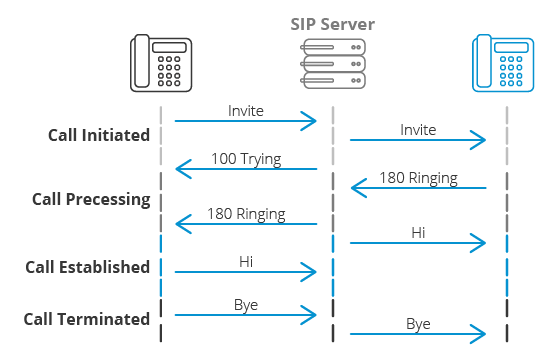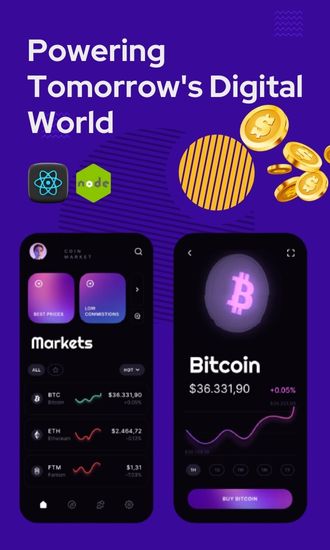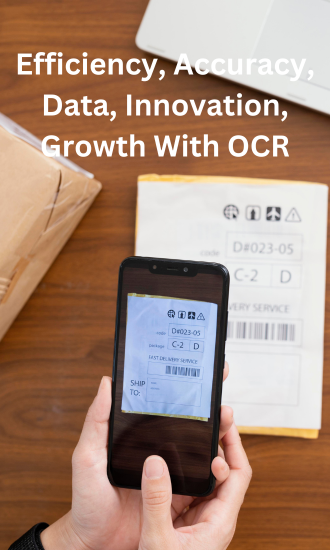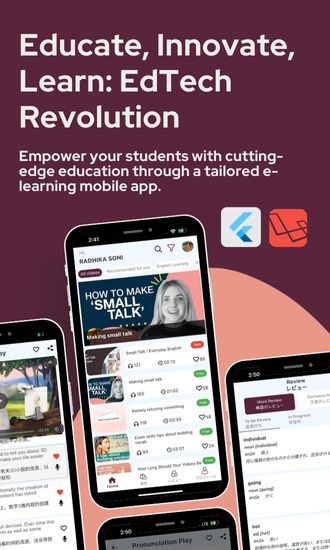What is SIP call? How it helps in communication?
In today's interconnected world, effective communication is the lifeblood of businesses and individuals alike. The advent of digital technology has revolutionized the way we interact with one another, and Session Initiation Protocol (SIP) calls play a pivotal role in enabling these interactions. SIP calls are an integral part of modern communication systems, facilitating voice and video calls over the internet. In this article, we will explore what SIP calls are and how they help in communication, also we will see why sip server provider should also own their own mobile app or web app for business growth and for providing more easier and flexible service to their client.
What is SIP Protocol?
SIP, which stands for Session Initiation Protocol, is a communications protocol used for initiating, maintaining, and terminating real-time sessions involving voice, video, messaging, and other communications applications. It is an open standard protocol used for controlling multimedia communication sessions over the Internet. SIP provides the necessary framework for various communication services, making it a fundamental technology for modern communication systems.
How SIP Calls Work?
SIP calls function as the cornerstone of Voice over Internet Protocol (VoIP) technology, enabling voice and video communication over the internet. The process of making a SIP call involves the following key steps:
-
Session Initiation: A SIP call begins when the calling party's device sends a "SIP invite" message to the SIP server or proxy. This invite contains information about the call, such as the source, destination, and desired communication method (voice, video, etc.).
-
Call Routing: The SIP server, which is often provided by an Internet Telephony Service Provider (ITSP) or a business's private server, routes the call to the recipient's SIP device based on the destination address in the invite message.
-
Call Establishment: Once the call request reaches the recipient, their device sends a response to the SIP server, indicating whether they accept the call. If accepted, the SIP server establishes a direct communication path between the two devices, allowing voice and video data to flow.
-
Real-Time Communication: With the communication path established, the calling and receiving parties can engage in a real-time conversation using voice, video, or other multimedia content.
-
Call Termination: When the conversation is over, either party can send a "SIP BYE" message to the SIP server, which will then release the established communication path, terminating the call.

SIP server providers should consider developing their mobile and web apps. Why?
In the ever-evolving landscape of communication services, SIP (Session Initiation Protocol) server providers have a unique opportunity to stay competitive, foster business growth, and offer superior service to their clients by developing their own mobile and web applications. These apps not only serve as a gateway to a more accessible, flexible, and user-friendly communication experience but also help SIP server providers stand out in a crowded marketplace.
SIP server providers should consider developing their mobile and web apps as essential tools for business growth and to enhance the overall client experience. Here's why:
-
-
Enhanced Accessibility: In a world where convenience is paramount, mobile and web apps provide clients with immediate access to SIP services at their fingertips. Users can manage calls, messages, and preferences from the comfort of their smartphones or computers, anytime, anywhere.
-
User-Centric Experience: Custom-built apps empower clients with a user-centric experience. They can easily navigate call features, set preferences, and troubleshoot issues, all within an intuitively designed interface, significantly improving client satisfaction.
-
Competitive Edge: In a competitive industry, owning an app sets SIP server providers apart. Clients are more likely to choose a provider that offers a streamlined, all-in-one solution. An app is a powerful marketing and differentiating tool.
-
Mobile App Development
Successful Project Delivered
Years of Experience
Successful Service Delivery
-
Scalability and Innovation: Providers can continually innovate and adapt to emerging technologies by integrating new features and updates directly into their apps. This scalability ensures that clients always have access to cutting-edge services.
-
Direct Communication and Support: In-app messaging and support features create a direct line of communication between clients and support teams, speeding up issue resolution and fostering a sense of reliability and trust.
-
Data-Driven Insights: Apps provide invaluable data on client behaviors, preferences, and usage patterns. This data can inform targeted marketing strategies and service enhancements, resulting in improved client experiences.
-
Branding and Visibility: The app serves as a direct channel for branding and marketing. SIP server providers can showcase their services and establish a strong market presence through the app's interface.
-
Client Engagement: Push notifications and alerts keep clients engaged by updating them on service improvements, new features, and other important information, ensuring they remain informed and invested in the provider's offerings.
-
Customization and Flexibility: Clients can personalize their settings, features, and preferences via the app. This flexibility allows clients to tailor their experience to their unique needs.
-
Future-Proofing: With technological advancements always on the horizon, owning an app positions SIP server providers to adapt and integrate with emerging technologies, future-proofing their services.
In conclusion, owning mobile and web applications is not only a smart business strategy but a necessity for SIP server providers. These apps provide a gateway to business growth, a competitive edge, and most importantly, they deliver accessible, flexible, and user-centric services that today's clients demand. By embracing this digital evolution, SIP server providers can create lasting relationships with their clients and continue to thrive in a dynamic and highly competitive industry.






.jpg)







